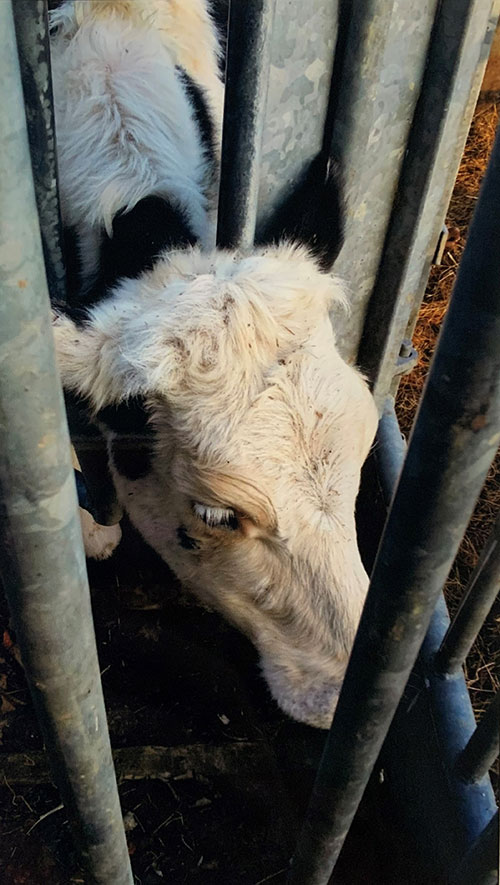Farmer who stole cow caught by DNA test

© Dyfed Powys Police
A Welsh police force says it has become the first in the UK to use DNA evidence from a stolen cow in a court case.
Dyfed-Powys Police used DNA from a £3,000 heifer, which had been retagged by a neighbouring farmer after escaping from a field, to prove it had been stolen.
The blood samples were compared against cows on the victim’s farm to prove a familial link and secure a conviction.
See also: DNA test snares Welsh sheep thief
This is the first time DNA blood from a heifer has been used in relation to a criminal court case.
David Aeron Owens, of Salem Road, St Clears, Carmarthenshire, pleaded guilty to theft at Swansea Crown Court on Monday (3 February).
The investigation started in December 2017, when a farmer in St Clears reported the theft of one of his 300 cows, which had escaped from his field four months earlier, the court heard.
Mr Owens had denied the missing animal was on his land, but the victim recognised it among the herd.
PC Gareth Jones, the investigating officer in the case, visited the farm and was handed a cow passport, listing ear tag numbers for the cow in question and the animal Mr Owens alleged was its mother.
The officer applied for a warrant to seize the stolen cow, which was separated from the herd and had blood samples taken for DNA comparison.
Wrong passport
Under advice from the Animal Plant Health Agency and due to movement regulations, the disputed animal remained on Mr Owens’ farm and he agreed to look after it on behalf of the police.
But DNA tests established that the heifer listed on the cow passport was not related to the disputed cow.
In March 2018, a Welsh government field officer went to the farm and seized the stolen heifer’s passport. She told Mr Owens she would return the following week to check the tags on his herd.
Arrangements were made for further samples to be taken by a vet, which were compared with a cow on the victim’s farm.
They were proven to be siblings, and based on the DNA results, the Crown Prosecution Service authorised charges against Mr Owens. He was summonsed to court and pleaded guilty to theft.
During the criminal investigation, Mr Owens started his own proceedings against Dyfed-Powys Police over the way blood samples were taken from the cow, as he had not been willing for this to happen.
A judicial review found the force was lawful in obtaining blood samples from the animal.
Mr Owens was fined £4,000 and told to pay £400 costs. A judge told him that, as a farmer, he would be well aware of the need for a level of trust in the rural community. By committing these offences, he had played a part in breaking down that trust, which will be difficult to build back up.

PC Gareth Jones © Dyfed Powys Police
Report crime
PC Jones paid tribute to the farmer victim for the “determination shown in wanting to see justice being done”.
He added: “Without the use of the heifer’s DNA, we would not have been able to prove that it had been stolen by Mr Owens, and that he had tried to alter identification tags to evade prosecution.
“What this case shows us is where the farming community works with the police, reporting crimes and providing us with vital information, we can be successful in taking out prosecutions.”
Dyfed-Powys Police has previously used DNA evidence to prove a genetic link between the progeny of stolen sheep to secure a conviction.
